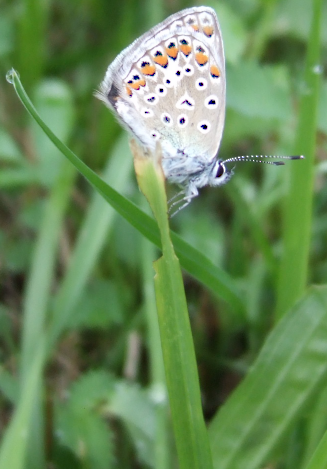Der Text ist in Englisch, weil er sich vor allem an Jon White, den sympatischen Erzähler des YT-Kanals Crecganford richtet.
Der Kanal bietet außerordentlich tiefschürfende Beiträge zur Frühgeschichte und vor allem Mythen und ihrer Entstehung…
Hier zunächst das Video, um das es geht:
Hello Jon,
… I enjoy your stories at YT a lot and now I am happy to find one, that I may can add a little contribution to: the one about the wild hunt.
I used to own a collection of folklore stories from north central Germany that had a story about “Hackelsberg und die wilde Jadg” (Hackelsberg und the wilde hunt) in it. It mentions 2 motifs not in your story and you may consider them to have them in future stories on the topic.
In short it goes like this:
One evening a shepherd in southern Hartz was suprised by a thunderstorm in the evening. So he sought for cover for himself and his sheep under a large tree when he mentioned that riding figures where running within the storm, it was Hackelsberg and his wild hunt.
The description and also the name “Hackelsberg” point to scenes from the 30year war, that had ravaged that region badly. Stories like this where often collected in the wake of the success of the Grimm brothes so in the 19. century, when older motifs may have fainted and where overwritten by the traumatic events of the wars that have raged in the 16th/17th centuries.
So there was no mention of Wodan or a femal figure but instead a name that sounded like the one of a 30year war warlord like “Hackelsberg”….
The shepherd trembeled in fear when the bunch stopped right over his head and Hackelsberg spoke to him. But the leader of the hunt just asked him for the direction to one prominent mountain in the vincinity, so the shepherd calmed a little and where able to point to where he knew that mountain would be.
The hunt started again for that direction but when the last riders went by, Hackelsberg returned to the man and said:
“Hast Du helfen jagen, sollts Du auch helfen nagen.”
(Thou hast helped hunting, so thou shallst help to nag(chew) also.)Then the shepherd heared a splatting sound near him and the hunt was gone. He looked at the place of the sound and found a large piece of meat, like a fresh bacon. So he produced his knife and cut off a piece and tasted it. But alas: he spitted it out and throw away the bacon because he found it to be horse meat…
I am not quite sure but AFAIK the taboo on horse meat was a “in older times people eat this but we are more civilized” kind of thing. So horse meat may point to some older culture that the shepherd is estranged to.
However the next day brings the most interesting motif:
When the shepherd had breakfast next morning he again got his knife to cut the bread and he found its blade full of shining pieces of pure gold… These where the remains of the bacon he had been rewarded with by the hunt so he ran to the tree where he had met them and searched for the bacon, that would have turned into a nugget worth as much as his whole village.
But of course he found nothing, because he had rejected the reward and gifts rejected do not return…
I have read that very often in german folklore, fairytales and local legends alike. Some mystic figure grants a mortal a gift as a reward for a small favour, the mortal does not appreciate or understand and silently turns down the gift only to find out later, that it would have turned into gold over night.
One of the implications seems to me, that poverty is also a result of a lack of knowledge or wisdom and explicitly: a lack of gratefullness. Hospitality was a most important ritual in germanic cultures. There are many stories of Odin/Wodan wandering the earth in the disguise of a vagabound and giving considerable reward to those, who show him hospitality and grim revenge against those, who dont. Similar stories aren known from hellenic mythology such as the haunting story of the Atalids and Sysiphos.
To reject a gift by a host was also considered an affront against the gods and could result in serious enmity against the ungrateful guest.
I hope, you find that little detail about the wild hunt stories interesting and thank you for your most inspiring stories on Crecganford!
